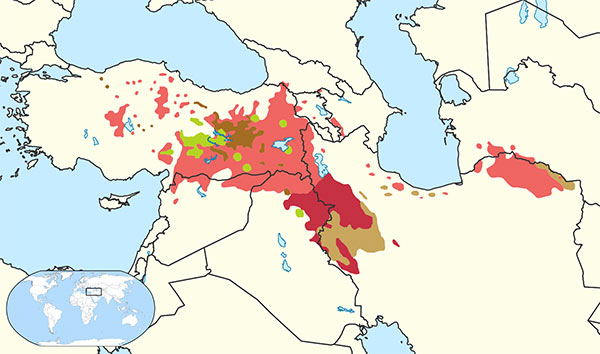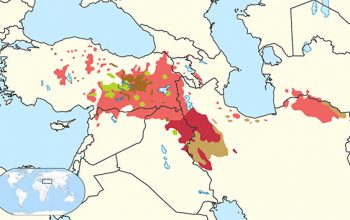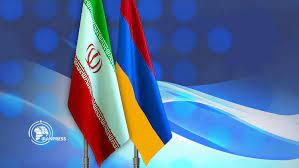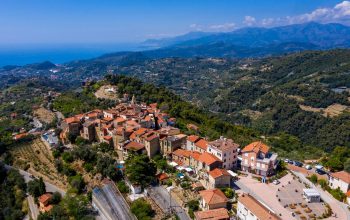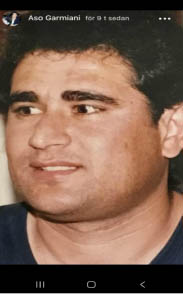
Dr. Aso Garmyani, PhD, Stockholm Sweden
In addition to living in their own country (Kurdistan), Kurds have long settled in neighboring countries such as Iran, Iraq, Turkey, Syria, the Caucasus and some other places such as Russia, Georgia, Armenia, Azerbaijan, Afghanistan, Lebanon and so on. They are scattered in those places and settled in those names.
There has been no official census for the Kurds. Regional censuses now put the total number of Kurds at more than forty-five million.
The border of the Kurdish language is on the land and territory of Kurdistan, on the map of Kurdistan as a territory and country. Unfortunately, this territory has been divided. Because of the oppression of the enemies, dictators and invaders, a unified Kurdish literary language has not been allowed to be formed. The negligence of the Kurds themselves was another important reason for this.
The Kurdish language in modern times (except for the two dialects of Lori and Gorani, Hawrami and Zazaki) is divided into two main dialects:
- The Northern Kurdish dialect, also known as Kurdish, is spoken by Kurds in Turkey, Lebanon, Syria, Khorasan and part of Iraqi Kurdistan, which includes the Badinan region.
- The southern Kurdish dialect, which is called Sorani and is spoken by Kurds in Iran and Iraq.
Each of the dialects of the Kurdish language is full of pure and pure original Kurdish words that are used today in writing, magazines, newspapers and daily media by thousands of these words. For example, there are many words that are Lori by origin, and Lori is Kurdish by origin, although unfortunately some people and authorities in other countries for their own interests or for any other reason,
They have called them something else and do not consider them Kurds, but they are different from the Kurds, either considering them to belong to Persian or a different dialect for themselves. This is a great injustice against the Kurdish people.
Such views are related to some kind of policy of the occupying parties and interests, or they have followed the wrong sources of the enemies. Some of these sources, individuals and parties continue on the wrong path of the enemies, but have not yet reached the essence and accuracy of their research.
The Lori dialect is part of the Kurdish language. Everything about Lori today proves that Lori are Kurds.
This is except for the misconceptions of some orientalists and some tourists.
If one happens to have little understanding in conversation with a Lorestan brother. This does not mean that Lori are not Kurds, or that Lori is not a Kurdish dialect, because so far the geographical division and distance of the regions on the one hand and the influence of political situations and problems On the other hand, attempts to dissolve and mix them with foreign words or mix them with other languages of the invaders pose a serious threat to Kurdish dialects.
Resources
- Sharafname Sharaf Khani Badlisi. 1972. Translated into Kurdish by Hazhar. Published by the Kurdish Information Forum in Baghdad. Published by the Kurdish Information Forum in Baghdad.
- Abdulaziz Faily. Faily. 1946. Baghdad.
- Hadi Hafez Qaitouli. Nidaa al-Kurd newspaper. in Arabic.
Sulaimani. 2001
- Nuri Ali Ahmad Salih. Professor Hussein Ahmad Bajalani.
London. 1999.
